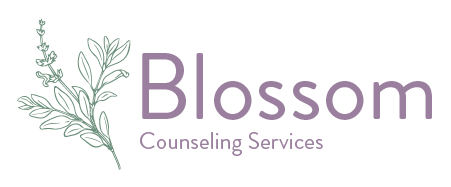In Indigenous communities, we carry more than memories in our bloodlines—we carry stories, wisdom, pain, and resilience. Generational trauma—sometimes called intergenerational trauma—is the emotional and psychological inheritance of the unresolved grief, abuse, neglect, or violence that our ancestors experienced. This kind of trauma doesn’t just fade with time; it weaves itself into how we love, how we parent, how we see ourselves, and how we show up in the world.
Yet healing is possible. If you’re wondering how to stop generational trauma, you are not alone—and you are already taking the first brave step by seeking understanding.
Can Generational Trauma Be Fixed?
Yes, generational trauma can be healed—but not in the way we often imagine “fixing” something. Healing this kind of trauma is not a one-time event or a checklist to complete. Instead, it’s a process of remembering, feeling, unlearning, and reweaving. When we engage in that healing work, we don’t just help ourselves—we change the course for our children, our families, and our communities.
Healing looks different for everyone. For some, it’s therapy. For others, it’s ceremony, prayer, connecting with land, or listening to elders. Most often, it’s a combination of many of these things. And always, it’s about coming home to yourself.
How Do You Break the Generational Trauma Cycle?
Breaking the cycle begins with awareness. We cannot heal what we cannot name. Begin by asking:
- What patterns repeat in my family?
- Where do I feel fear or shame that doesn’t belong to me?
- What stories was I told about love, safety, worth, and identity?
Once you start noticing these patterns, the work is to pause before passing them on. That might mean learning to sit with discomfort instead of numbing it, choosing a gentler response with your children, or seeking support when emotions feel overwhelming.
How to Come Out of Generational Trauma?
Coming out of generational trauma doesn’t mean forgetting the past. It means integrating it, honoring it, and choosing not to repeat it.
This might involve:
- Naming the harm: Acknowledging what happened—to you or your ancestors—without minimizing it.
- Regulating the nervous system: Generational trauma often leaves us in survival mode. Somatic practices, breathwork, and mindfulness can help bring calm and balance.
- Building new ways of relating: Learn how to set boundaries, communicate with care, and give yourself the love and compassion you may not have received.
- Reclaiming identity: Reconnect with ancestral traditions, cultural practices, and stories that affirm who you are.
You are not broken—you are becoming. Your healing is not only possible; it is sacred.
How to Break Free from Childhood Trauma?
Childhood trauma is often where generational pain lands first. Whether it’s emotional neglect, abuse, or being made to feel “less than,” these experiences teach us survival—but not always how to thrive.
To break free, we need to rewrite the messages childhood trauma left behind:
- “I am worthy of love and safety.”
- “I can feel my emotions without fear.”
- “I have a right to rest, joy, and connection.”
Therapy and intentional healing practices can help you reparent your inner child—gently tending to the parts of yourself that once had to stay quiet, stay strong, or stay hidden to survive. This kind of healing allows you to feel what was once too painful to process and to develop new ways of relating to yourself and others that are rooted in safety, care, and truth.
For a deeper look at how this healing process unfolds and why it matters, you might explore our article on stopping generational trauma. It offers compassionate, culturally grounded guidance for interrupting inherited patterns and reclaiming your story.
Healing is a Prayer You Offer to the Future
When you begin healing generational trauma, you are not only doing it for yourself—you are doing it for those who came before and those who will come after. You become a living ceremony, where old wounds are met with compassion, and new legacies are born.
This journey isn’t always easy. It can be heavy, lonely, and slow. But you don’t have to walk it alone.
Ready to Begin?
If you feel called to begin your healing journey—or deepen the one you’ve already started—Blossom Counseling Services is here to support you. Our therapists honor Indigenous wisdom and understand the unique nuances of generational trauma, offering therapy that is both clinically sound and spiritually rooted.
Book your first session with Blossom Counseling Services today and begin the journey of healing for yourself—and for the generations to come.
Get Started
You may call, text message, email, or fill out the form to reach us. We will respond within 48 hours, Monday through Friday.
We Will Help You Find Your Fit
We know that looking for a counselor can feel overwhelming.
We are here to help guide you to the counselor that is best for your needs. If that counselor turns out to
not be in our practice, that's okay. We know great counselors that we'd be happy to refer you to.
What’s most important to us is that you get connected with the help you need. We are here for you.

